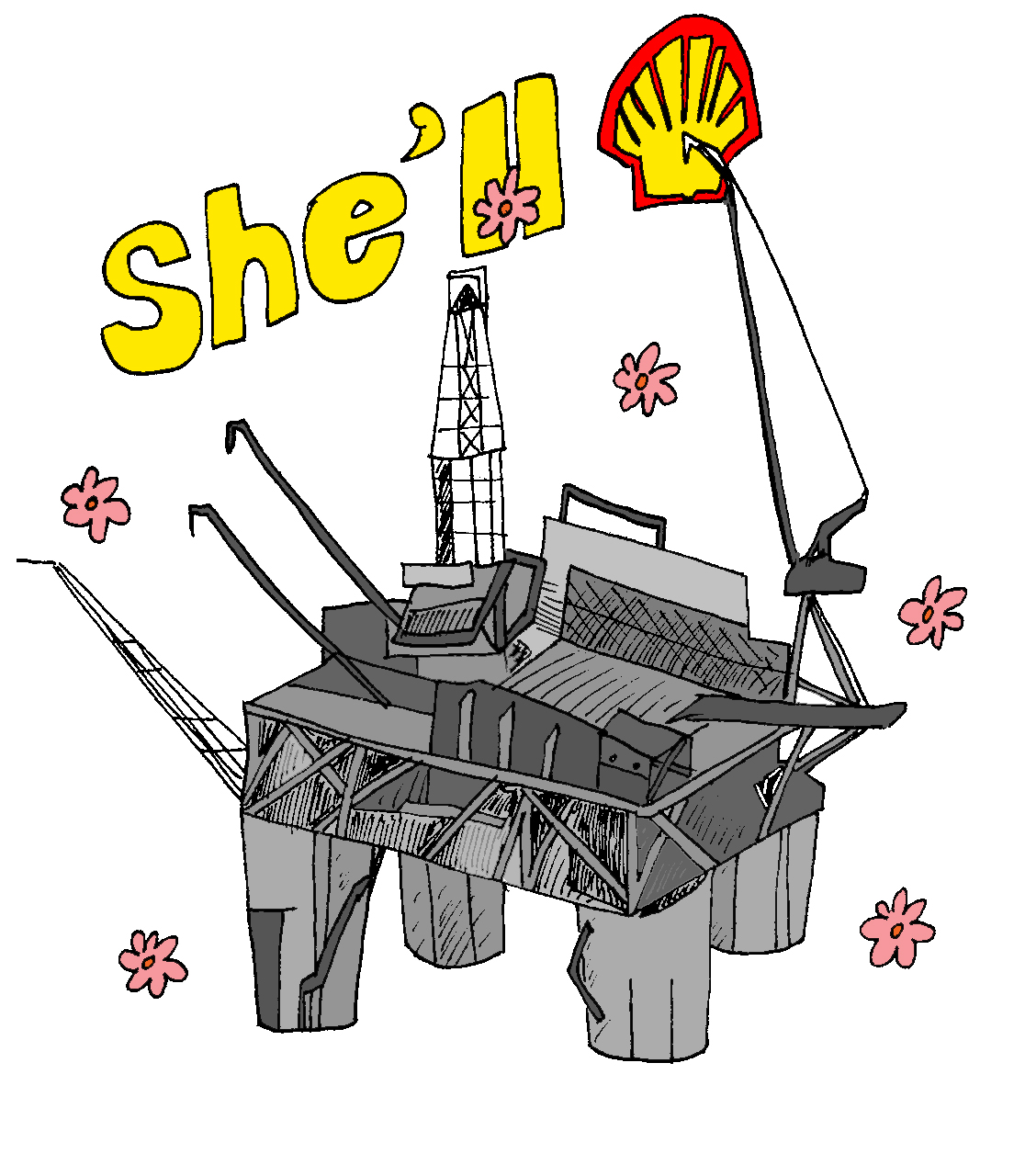The dead-end of corporate virtue-signaling
March 27, 2020
 This
piece represents the opinion of the author
.
This
piece represents the opinion of the author
.
 Dalia Tabachnik
Dalia TabachnikInternational Women’s Day, a holiday unrecognized by the American government, was in part inspired by a fire at the Triangle Shirtwaist Factory in Lower Manhattan which claimed the lives of 146 women. Because management had locked the doors of the sweatshop in order to crack down on unauthorized breaks, many workers jumped out of the high building to their deaths.
For International Women’s Day 2020, Shell—the Anglo-Dutch oil and gas behemoth—released an upbeat video announcing that it would temporarily be changing its name to “She’ll.” The video features phrases like “She will be respected” and “She will be supported,” superimposed on smiling close-ups of American-looking women and girls. It’s the kind of feel-good and inoffensive ad campaign that companies have distilled into a science.
To give you a little background, here’s some history about “She’ll,” the third-largest company in the world. In the 1950s, while Nigeria was under British rule, She’ll collaborated with colonial authorities to develop the rich oilfields of the Niger Delta. Over the next couple of decades, Nigeria became independent, but She’ll continued extracting petroleum in the Delta, leading to thousands of oil spills that degraded the land to the extent that agriculture was no longer viable, impoverishing the region’s indigenous Ogoni people. By the 1990s, facing the threat of total displacement, Ogoni leaders began organizing against She’ll and the Nigerian government. In response, She’ll encouraged authorities to initiate a brutal crackdown that culminated in the execution of nine Ogoni activists.
The unpunished ruthlessness of She’ll in Nigeria demonstrates how International Women’s Day, as a product of its newfound popularity among the woke masses of the First World, became a mockery of itself and its labor roots. Through its new name, She’ll signals its commitment to a new vision of capitalism in which the hierarchy of organizational power is free of identity-based discrimination. Women and people of color will be present at every level of the corporate pyramid. And who knows, maybe the next humanitarian disaster will be masterminded with a more feminine touch!
Corporate America’s ham-fisted embrace of International Women’s Day is part of a new consciousness of identity that conveniently ignores class while co-opting the satisfying self-righteousness of railing against “oppression.” They see nothing inherently amiss with the relationship between owner and worker, so they must invent a far more insidious reason for society’s baked-in inequalities.
It is now in vogue among liberals to imply that the most important social issues facing America are psychological in nature. “Lean In” by Sheryl Sandberg, for example, chalks up the dearth of women in the upper reaches of management to implicit bias against femininity. As a solution, Sandberg proposes that women should pursue “success” in the workplace just as fervently as their male peers. She encourages women to become their most marketable selves at the expense of the ethical or social frameworks that guided family life before its colonization by capitalism in the 20th century.
The problem with liberal identity politics, however, is that the gap that exists between privileged and marginalized groups cannot be explained exclusively by subliminal bias or even individual bigoted actions as a whole. Rather, we have inherited a class system from a society in which bigotry was ubiquitous to the point that it was legally sanctioned. While it’s true that studies have shown that resumés carrying traditionally feminine names are somewhat less likely to be selected for certain prestigious jobs, we must also recognize that traditionally feminine jobs are concentrated in lower-paying, service-oriented fields.
She’ll and other stakeholders in the current social order have therefore resorted to “representation” as their silver bullet to placate those who observe the inequalities that marginalized groups face. If we put enough diverse faces in our ads, they argue, Americans will be cured of their subliminal bigotry and no one will have anything to complain about. Americans’ collective bigotry in the 21st century, however, is not enough to account for the great divide between male and female as well as white and black. Rather, we are suffering from the consequences of an economic system which, for the most part, is utterly unable to mend its past divides. The solution is to value the work of marginalized people for what it is actually worth, not the value the market assigns it. Once we tackle the material reality of inequality, we’ll realize that “She’ll” and all other corporate panderings were nothing more than grasping attempts to obscure the role of class in society and the workplace.

Comments
Before submitting a comment, please review our comment policy. Some key points from the policy: